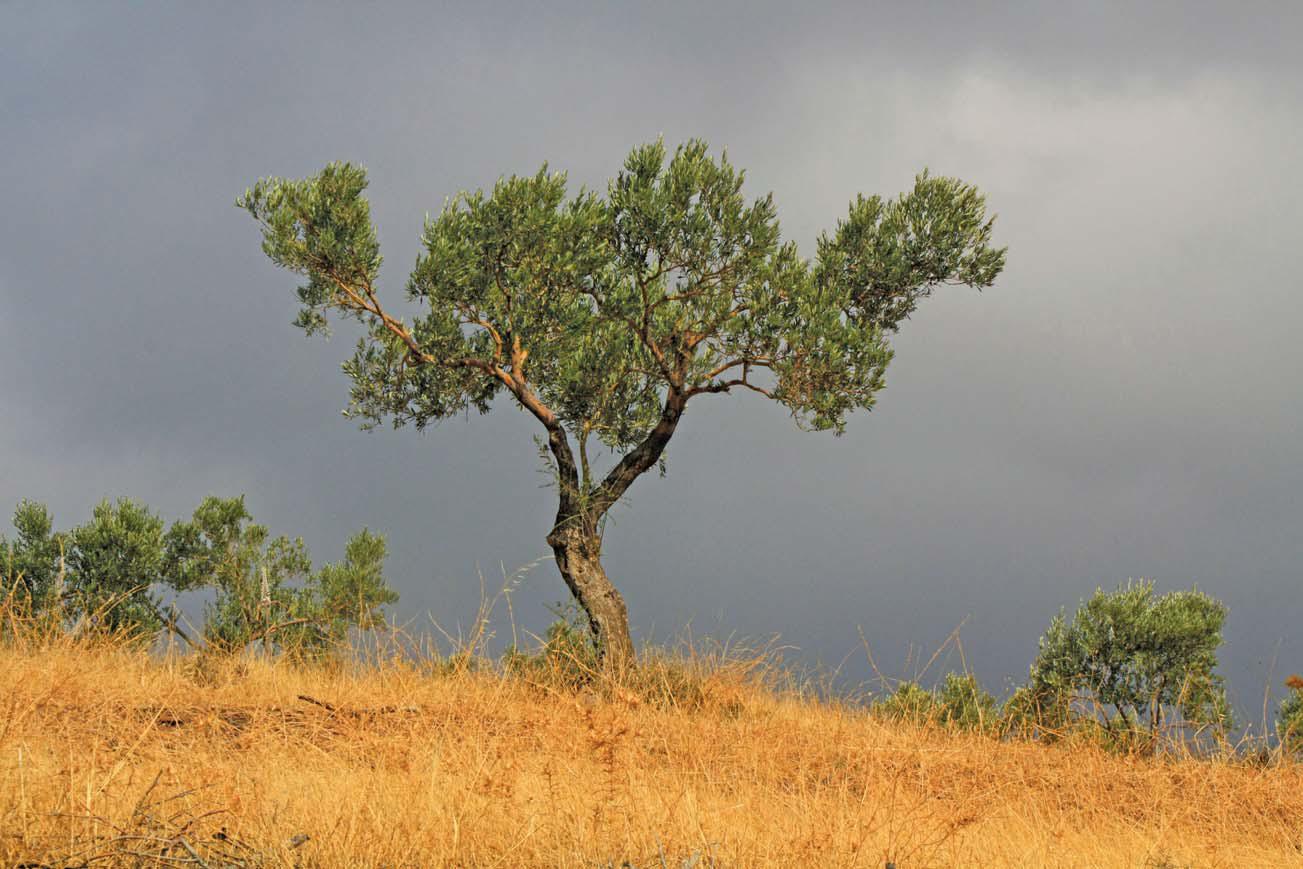Versuchen GOLD - Frei
Producing olives and dates in Tunisia
Farmer's Weekly
|Farmer's Weekly 24 March 2023
Despite Tunisia's variable climate, the agriculture sector there remains vital to the country's economy. Tunisia is also a leading producer of dates and olive oil. Janine Ryan reports.

Tunisia, the smallest country in North Africa, is bordered by the Mediterranean Sea to the north and east, and has a population of around 10 million people.
The northern, mountainous parts of the country, where the climate is temperate, experience cool, wet winters and hot, dry summers. The central region is hot, dry and flat, and the southern part is covered by the Sahara Desert. Rain is largely confined to northern Tunisia, which receives around 1 520mm annually.
In spite of Tunisia’s varied climate, agriculture plays an important role in the country’s economy, with the sector contributing around 12,6% to national gross domestic product. Due to the relatively low rainfall received in central and southern Tunisia, around 66% of total cultivated land receives less than 400mm of rain every year.
In 2009, Tunisia had 516 000 farms, with 87% of these smaller than 20ha, according to the Global Forum for Rural Advisory Services. The forum adds that only around 8% of farmers own half of the country’s arable land, whereas 62% are smallholders who farm on less than 10ha each.
Tunisia’s main grain crops are wheat and barley. Olives, grapes, citrus and dates are grown commercially, as are tomatoes, potatoes, onions, peppers and artichokes. Farmers also run cattle, sheep, goats, camels and chickens.

DATE PRODUCTION
Tunisia represents 50% of the global population of date palm trees (Deglet Nour variety), and production is primarily situated in the Djerid and Kebili regions.
Diese Geschichte stammt aus der Farmer's Weekly 24 March 2023-Ausgabe von Farmer's Weekly.
Abonnieren Sie Magzter GOLD, um auf Tausende kuratierter Premium-Geschichten und über 9.000 Zeitschriften und Zeitungen zuzugreifen.
Sie sind bereits Abonnent? Anmelden
WEITERE GESCHICHTEN VON Farmer's Weekly

Farmer's Weekly
Tropical avo smoothie
Escape to the tropics with this luxurious, creamy, and vibrant smoothie! Blending rich avocado and sweet mango with zesty lime, fragrant mint, and a punch of tangy granadilla, this recipe transforms into a nutrient-packed and silky-smooth treat.
1 min
January 16-23, 2026
Farmer's Weekly
THE HITCHING POST
I am a 60-year-old white woman who loves camping, animals, the outdoors and watching sport.
2 mins
January 16-23, 2026

Farmer's Weekly
The enduring legacy of Tiyo Soga
In the 1850s, Tiyo Soga, a Xhosa man, became the first ordained black South African minister. But as Mike Burgess writes, his legacy would also be determined by his all-round intellectual abilities honed by a solid Scottish education.
4 mins
January 16-23, 2026

Farmer's Weekly
Isuzu D-Max shows single cabs can be comfortable companions
Bakkie manufacturers don't give single cabs to the media due to them generally being regarded as workhorses without the bells and whistles from fancier double cabs. The Citizen's Charl Bosch was gobsmacked when a single cab arrived for a three-month stay.
2 mins
January 16-23, 2026

Farmer's Weekly
South Africa eyes home-grown rice as ARC expands research efforts
South Africa is taking bold steps toward reducing its dependence on rice imports by exploring the viability of home-grown upland rice. Through a major research drive led by the Agricultural Research Council's Small Grain division, scientists and industry partners are testing rice varieties capable of thriving in South Africa's diverse soils and increasingly water-scarce climate. Anelisa Gusha reports.
3 mins
January 16-23, 2026

Farmer's Weekly
Spanish tortilla
Bring the authentic flavours of Spain to your table with this robust and satisfying Spanish tortilla.
1 min
January 16-23, 2026

Farmer's Weekly
New year brings marvellous new titles
Patricia McCracken, like many of us, has settled back into the grind of the new year and picked up a diverse selection of books ranging from travel, to fiction, to non-fiction and a delightful local children's adventure.
2 mins
January 16-23, 2026
Farmer's Weekly
Nitrogen 'switch' unlocks greener crops
A ground-breaking discovery by molecular biology professors Kasper Røjkjær Andersen and Simona Radutoiu at Aarhus University in Denmark offers a significant step toward developing self-fertilising grain crops, potentially revolutionising agriculture to be greener and more climate-friendly.
1 min
January 16-23, 2026

Farmer's Weekly
Sweet prospects: the current state of litchi production in South Africa
Bram Snijder, agricultural consultant and chairperson of the South African Litchi Growers' Association, spoke to Octavia Avesca Spandiel about the litchi industry embracing new opportunities, tackling challenges, implementing innovation, and reaching markets both locally and internationally.
6 mins
January 16-23, 2026

Farmer's Weekly
How AFGRI uses technology to unlock farm finance from asset to market
As modern farming becomes more capital-intensive and digitally driven, AFGRI is reinventing agricultural finance by linking technology directly to lending decisions.
5 mins
January 16-23, 2026
Translate
Change font size
